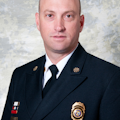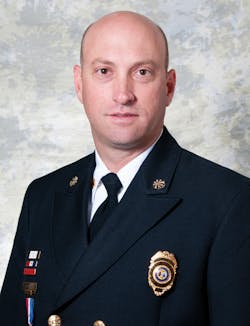There is legislative activity and legal issues involving fire protection in nearly every state. In Wisconsin, an attorney general opinion will place citizens and firefighters at risk for the rest of our careers and beyond, all because a 20-unit apartment complex can be built in 2018 without adequate fire protection because of a political and legal conflict. The same thing is occurring in Connecticut. And a city in Arizona is being sued because it apparently overstepped its authority in trying to cooperate with developers to best protect the citizens, firefighters and community.
The fire service’s ability to influence legislation seems to have eroded during my short 30-year stint in this great profession. Have the opponents hired more impactful lobbyists and lawyers to negate fire service credibility? Does the fire service have the political strategy and tactics to accomplish its tasks?
Help is available. Your fire service and fire protection associations have great teams in place to help you preplan your risks, determine your strategies, and assist with your tactics. I applaud the leadership of the NFPA and the IAFF for their efforts with the Fire Sprinkler Initiative and cancer initiatives, respectively. These groups have full-time staff and hired lobbyists to help ensure that legislation and regulation have a positive impact on citizens and firefighters. But they can’t do it alone. This is where the preplanning, along with automatic and mutual aid, come into play.
Let’s use Connecticut as an example. For the past three years, the NFPA—through the Connecticut Fire Sprinkler Coalition—has lead the charge to ensure that the latest codes and standards are adopted. This initiative is supported by the National Fire Sprinkler Association (NFSA) and other fire protection groups. The NFPA and NFSA have had full-time employees dedicated to assisting the fire service in their efforts, and the NFPA has utilized marketing and lobbying firms in this initiative.
The codes improved, with the regulatory body compromising and agreeing that townhouses should have a higher level of fire protection. However, when it arrived in a legislative committee, powerful politicians used bureaucratic lawyers to hold up the process and ensure that a higher level of fire protection was not allowable. This decision will continue to play out into the 2019 session.
There has been preplanning and automatic aid on this situation in Connecticut, and now it’s time for mutual aid. Just like on a fire, those coming in for mutual aid need to report to the command post and prepare for a briefing. Riding in and pounding a fist on the table or arriving and jumping into the firefight is not a good tactic. We need cooperation at the local, state and federal level like never before.
Are you preplanning the approaching regulation and legislation that will negatively impact your ability to serve your citizens and firefighters? Do you know what automatic aid is available to assist in your needs? What mutual aid can you call in before the fire is so far out of control that it can’t be managed? Every state needs to plan for a fight.
A Massachusetts judge ruled against a fire chief’s authority to require fire protection improvements during remodels. Minnesota advanced fire protection in large single-family homes by using the proper regulatory process, only to have it ruled that this decision was “arbitrary and capricious.” Indiana attempted legislation to improve local government’s ability to improve fire protection, only to have an “add-on” to the bill that prohibits the local and state government from adopting national model codes that include fire sprinklers in single-family homes. New Jersey’s previous governor had the chance to improve fire protection statewide twice—and didn’t do it. The new governor indicates he will do it, but what will the legislative and judicial branches do to stop this proactive legislation?
If you engage in your respected positions on a consistent basis, we can turn this wave of negative influence and begin to win again. It does, however, take all of us working together. Our collective voice—connected with assistance from lobbying firms that have people with a passion for the cause—can and will make a difference. The fire service has the talent, resources and respect to engage in the political arena. Ensure that your state is prepared for what’s coming and is already engaged in its current battles.
About the Author

Shane Ray
SHANE RAY has been a volunteer firefighter since 1984 and a career firefighter since 1994. He has also served as a mayor for six years and the Tennessee Fire Chief’s Legislative Chairman for 12 years. Ray’s love for politics started as fire chief of the Pleasant View Volunteer Fire Department in Tennessee, where he served 13 years. He then served under Governor Nikki Haley in South Carolina as superintendent and state fire marshal. He currently serves as the president of the National Fire Sprinkler Association and is a lifetime member of the Pleasant View Volunteer Fire Department. Throughout his career, he has been committed to public service with a “Do It Different” mentality and that all stakeholders are important.
